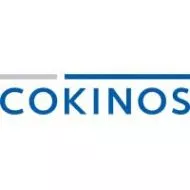- with readers working within the Business & Consumer Services and Insurance industries
The U.S. Treasury Department has announced that it will not enforce any fines or penalties under the Corporate Transparency Act ("CTA") against U.S. citizens, domestic reporting companies, or their beneficial owners. It will also issue a proposed rulemaking to formally narrow the CTA's reporting requirements to foreign reporting companies only.
Where we were
On February 27, the Treasury Department's Financial Crimes Enforcement Network ("FinCEN") announced that it intended to issue a rule change to extend the CTA's reporting deadlines — and that it would do so before the current deadline (applicable to most companies) of March 21. FinCEN also said it would not enforce the March 21 (or other current) deadlines, including by issuing fines or penalties. Finally, in its February 27 announcement, FinCEN stated that it would initiate a formal process later this year "to minimize burden on small businesses while ensuring that [CTA-reportable "beneficial ownership information" or "BOI"] is highly useful to important national security, intelligence, and law enforcement activities."
Where we are now
On the evening of Sunday, March 2 — yesterday evening, if you're reading this in real time — the Treasury Department issued an announcement that went much farther than FinCEN's February 27 announcement.
- Because FinCEN is the office that administers the CTA, notices regarding the CTA normally come from FinCEN. But FinCEN is part of the Treasury Department, so Treasury itself has ultimate regulatory authority over the CTA.
Specifically, Treasury announced two new CTA policies.
Non-enforcement policy as to U.S. citizens, domestic reporting company and their beneficial owners
First, Treasury announced that it would not enforce any penalties or fines associated with the CTA's reporting requirements against U.S. citizens or "domestic reporting companies" or their "beneficial owners," either before or after the upcoming rule change extends the current reporting deadlines.
- Who is protected by this new blanket policy of non-enforcement?
- U.S. citizens
- "Domestic reporting companies": A "domestic reporting company" is a company that (1) was created by a filing with a secretary of state (or similar office) under the law of a U.S state or Indian tribe, and (2) is not exempt under one of the CTA's 23 exemptions. An example would be a corporation or LLC formed in Texas or Delaware, and which does not qualify for one of the CTA exemptions.
- "Their beneficial owners" — i.e.,
"beneficial owners" (25%-or-more individual owners, or
individuals with substantial control) of domestic reporting
companies.
- If a non-U.S. citizen is a beneficial owner of a domestic reporting company — such as a Mexican citizen who owns 25% of a California LLC — then presumably the blanket non-enforcement policy protects him or her as well, but only as to such "domestic reporting company."
Formal process to limit CTA reporting to "foreign reporting companies"
Treasury's new non-enforcement policy is obviously intended to protect U.S. citizens, domestic reporting companies and their beneficial owners from the CTA's reporting requirements. But the non-enforcement policy is presumably a stop-gap measure, because formally removing such persons and companies from the scope of the CTA reporting rules will require amendments to those rules. Amending the rules, in turn, requires a formal "rulemaking" process, which can easily take months. Treasury referred to that process when it said, in the March 2 notice, that it "will further be issuing a proposed rulemaking that will narrow the scope of the rule to foreign reporting companies only."
- A "foreign reporting company" is a company that (1) was formed under the law of a foreign country, (2) that has registered to do business in any U.S. state or tribal jurisdiction by a filing with a secretary or state (or similar office), and (3) is not exempt under one of the CTA's 23 exemptions. An example would be a German GmbH, a UK private limited company (Ltd), or a French SARL, that chooses to register to do business in the U.S. directly (rather than through a U.S. subsidiary) — and which does not qualify for any of the CTA exemptions.
The content of this article is intended to provide a general guide to the subject matter. Specialist advice should be sought about your specific circumstances.









